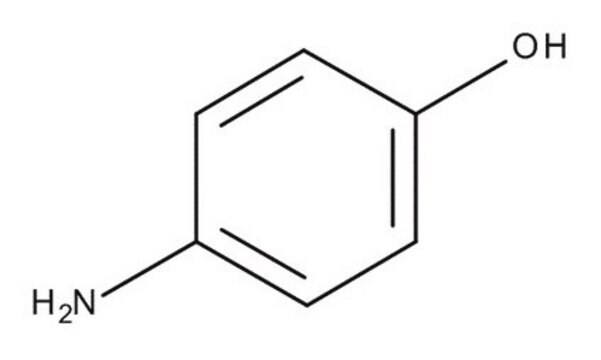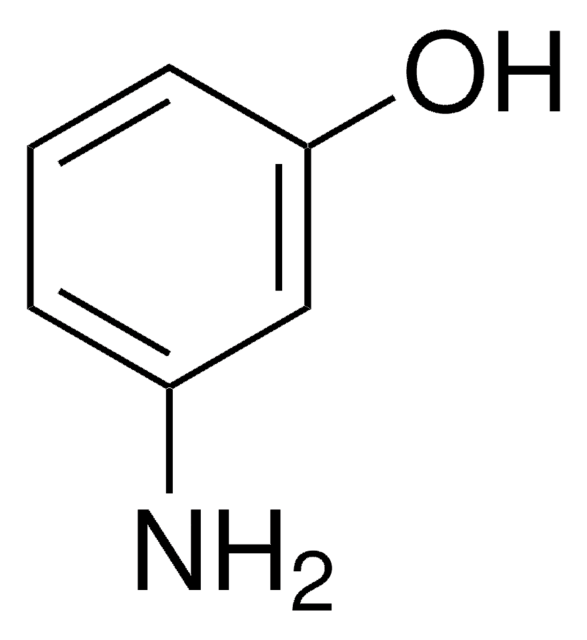1021204
USP
4-Aminophenol
United States Pharmacopeia (USP) Reference Standard
Synonym(s):
4-Hydroxyaniline
About This Item
Recommended Products
grade
pharmaceutical primary standard
API family
paracetamol, acetaminophen, mesalazine
manufacturer/tradename
USP
mp
185-189 °C (lit.)
application(s)
pharmaceutical (small molecule)
format
neat
SMILES string
Nc1ccc(O)cc1
InChI
1S/C6H7NO/c7-5-1-3-6(8)4-2-5/h1-4,8H,7H2
InChI key
PLIKAWJENQZMHA-UHFFFAOYSA-N
Looking for similar products? Visit Product Comparison Guide
General description
For further information and support please go to the website of the issuing Pharmacopoeia.4-Aminophenol is the principal degradation product of acetaminophen, formed as an impurity during its hydrolysis.
Application
Also used to prepare standard and system suitability solutions to test for the presence of 4-aminophenol as an impurity in various pharmaceutical dosage forms of acetaminophen, according to the United States Pharmacopeia (USP) monographs:
- Mesalamine
- Acetaminophen Tablets
- Acetaminophen Oral Suspension
- Tramadol Hydrochloride and Acetaminophen Tablets
Analysis Note
Other Notes
related product
Signal Word
Warning
Hazard Statements
Precautionary Statements
Hazard Classifications
Acute Tox. 4 Inhalation - Acute Tox. 4 Oral - Aquatic Acute 1 - Aquatic Chronic 1 - Muta. 2 - Skin Sens. 1 - STOT RE 2
Target Organs
Kidney
Storage Class Code
6.1C - Combustible acute toxic Cat.3 / toxic compounds or compounds which causing chronic effects
WGK
WGK 3
Flash Point(F)
Not applicable
Flash Point(C)
Not applicable
Regulatory Listings
Regulatory Listings are mainly provided for chemical products. Only limited information can be provided here for non-chemical products. No entry means none of the components are listed. It is the user’s obligation to ensure the safe and legal use of the product.
PRTR
Class I Designated Chemical Substances
ISHL Indicated Name
Substances Subject to be Indicated Names
ISHL Notified Names
Substances Subject to be Notified Names
JAN Code
1021204-100MG:
Certificates of Analysis (COA)
Search for Certificates of Analysis (COA) by entering the products Lot/Batch Number. Lot and Batch Numbers can be found on a product’s label following the words ‘Lot’ or ‘Batch’.
Already Own This Product?
Find documentation for the products that you have recently purchased in the Document Library.
Customers Also Viewed
Our team of scientists has experience in all areas of research including Life Science, Material Science, Chemical Synthesis, Chromatography, Analytical and many others.
Contact Technical Service









